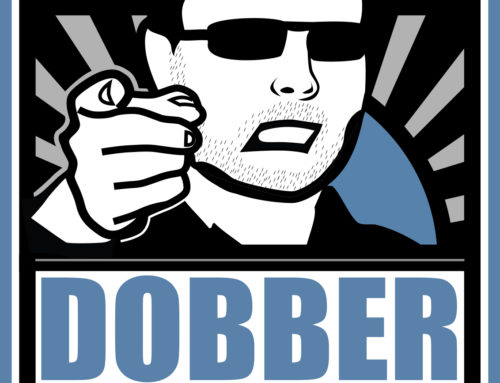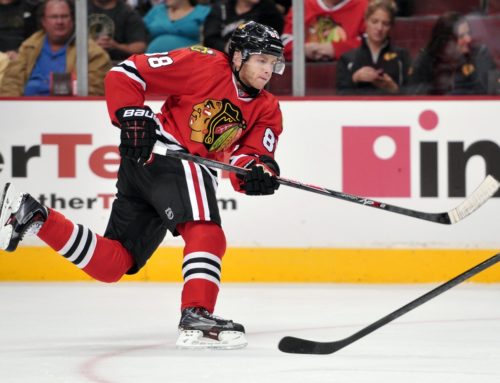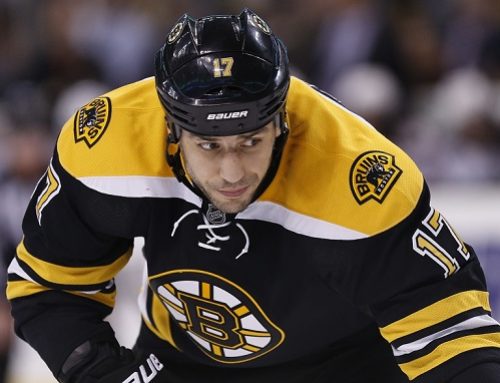What to Watch For: Mental Focus and Strength (Part III of V)
Justin Goldman
2008-08-18

When it comes to analyzing what type of mental state your goalies are in as the season gets started, break this aspect of their game into three major categories. The first is classified as all negative reactions (that’s this week’s lesson – how goalies must handle negativity), the second is their unique mental game blueprint (coming in Part IV) and the third is their setting within the team’s current roster landscape (and there you have Part V). These three categories will give you a solid idea of what mental strengths the goalie has and if they’re currently performing up to your standards.
Ask any pro goalie whether or not they focus more on their mental or technical game and almost all of them will answer with the former. That’s because at this stage of their career, the technical aspects such as positioning and angles are completely routine and pretty much flawless. What’s more important to them is doing whatever it takes to help their team win – no matter what the score is or how many goals they allow. They will never question HOW to make certain saves or WHAT to do in certain situations because they’ve been through it a million times. Instead, they are now being coached to constantly be mentally focused so that they can execute perfectly the entire game.
Now since momentum plays such a vital role in dictating the score, pro goalies usually learn early in their career the importance of strong mental focus. They are forced to learn the hard way – through the trials of bitter defeat – that they’ll get eaten alive if they constantly show frustration and anger when allowing goals. You’ve seen it go down so often that it makes the lesson for this week very simple; any type of negative reaction to being scored on is absolute suicide because it not only destroys their own mental focus and strength but the collective will and focus of the team.
Watch goalies closely after they’re beat. Do they slightly bang their stick or jerk their head in frustration? Do they slap their stick against the post and lift their head up to the sky or straight down to their chest? Maybe they will even sit back on one knee and give the ol’ death stare to their defensemen in disgust and with a sense of unenthusiastic betrayal. They might even appear more visibly upset at times, like attacking a referee with bereaved statements, all of which come in vain, only furthering their frustrations. Stick a fork in them if that happens – they’re usually done at that point.
And you don’t see it often, but if you watch enough games sometimes you can even see the negative reaction come AS THE PUCK is sliding underneath them. This is pure goalie analysis gold. Just think hard for a few moments and you’ll come up with at least one memory of that raw display of emotion. I’m talking about that utterly helpless look as if a goalie were saying, “I knew it was coming and I tried to get over as fast as possible but I was left out to dry by my dim-witted defenseman and all I can do is watch it go past me in futile disgust!” It’s a tough shot to the gut that goalies have to literally just absorb and live with. Believe me – I’ve been there personally way too many time – and I truly hate it.
Seriously though, there are monumental problems that come with goalies reacting negatively to a goal against. First and foremost, the other team feeds off it like a ravenous pack of wolves. They’re all watching from the bench and they all know the opportunity that comes by scoring a big goal and the momentum that can be gained with one dominant shift. Secondly, the negative reaction affects the way a goalie’s teammates compete in front of him. A goalie with negative body language and negative emotions is like an infectious disease that instantly spreads to the players closest to him. Finally, the bad reaction becomes a negative element in his mindset for the rest of the game. Like a festering wound, if it’s allowed to stay open, he isn’t playing in the moment. That means he isn’t focused and confident.
To put it simply, there is just a specific mindset that successful NHL goalies have. It’s that they don’t care about playing the “perfect” game. They only focus about doing whatever it takes to win the game. If they allow bad goals in the first two periods, it will literally pale in comparison to the importance of making big saves in the final five minutes of a 5-5 tie. The winners will instantly forget about the past and focus only on the current moment and the next play. The losers allow the past to affect their focus and they will end up making another bad mistake, more often than not on something like a bad judgment call or a hesitant reaction.
Having the mental strength, focus and determination to make that big push at the end of a game will almost always turn them into a franchise goaltender and a fantasy gem. Mental focus breeds consistency and that breeds big-time winners. The big-time winning goalies are the ones that have learned over time to mentally trick themselves into having no memory and showing no emotion to the opposition. Everything comes from within and it is there that a goaltender will truly push aside bad goals and stay focused. Their first step is acknowledging the mistake and accepting it as part of the game. They never look behind them to ADMIT defeat…they just ACCEPT it and then FORGET it.
So it’s very important to understand that a successful and confident goalie is focused on winning the game – not playing shutout hockey. By not reacting negatively to goals against, they stay focused on the next save and overcome the momentum that was lost. Chris Osgood is just one of many goalies who have experienced this learning process during their career. It wasn’t that Osgood allowed so many bad goals during his early 20’s, it was that he allowed them to affect him mentally and ultimately technically – and that certainly affected the way his team played in front of him. At that point in his career he couldn’t handle the burden of stopping the intermittent scoring opportunities that came from facing only 20 shots in a game because he was easily rattled and distracted when he allowed just a single goal.
But as his game matured and time went on, seeing fewer shots (and more importantly playing in games where he’d allow two goals on 10-12 shots) didn’t faze him. So when he was called upon to make 15-16 saves in the third period of a high-scoring game, he had no problem focusing. And if you ask me, that’s the true difference between pro goalies and Cup-winning goalies – brushing aside all negativity and making good saves at big moments.
In conclusion, analyzing how a goalie handles giving up a goal and then determining how much negativity he displays will further enhance your ability to read and gauge their upcoming season. It’s hard to believe that September is just around the corner and with all of the great stories during these summer Olympic Games, I’m foaming at the mouth to see some training camp action. Next week stay tuned as School of Block is again in session to discuss the different types of unique mental blueprints you find in NHL goalies and which ones are more suited for success this season.





 PHI
PHI WSH
WSH FLA
FLA MIN
MIN N.J
N.J T.B
T.B BUF
BUF DAL
DAL MTL
MTL NYR
NYR CBJ
CBJ TOR
TOR NYI
NYI DET
DET STL
STL WPG
WPG CHI
CHI VAN
VAN SEA
SEA COL
COL NSH
NSH BOS
BOS EDM
EDM CAR
CAR UTA
UTA OTT
OTT CGY
CGY PIT
PIT ANA
ANA S.J
S.J VGK
VGK L.A
L.A
